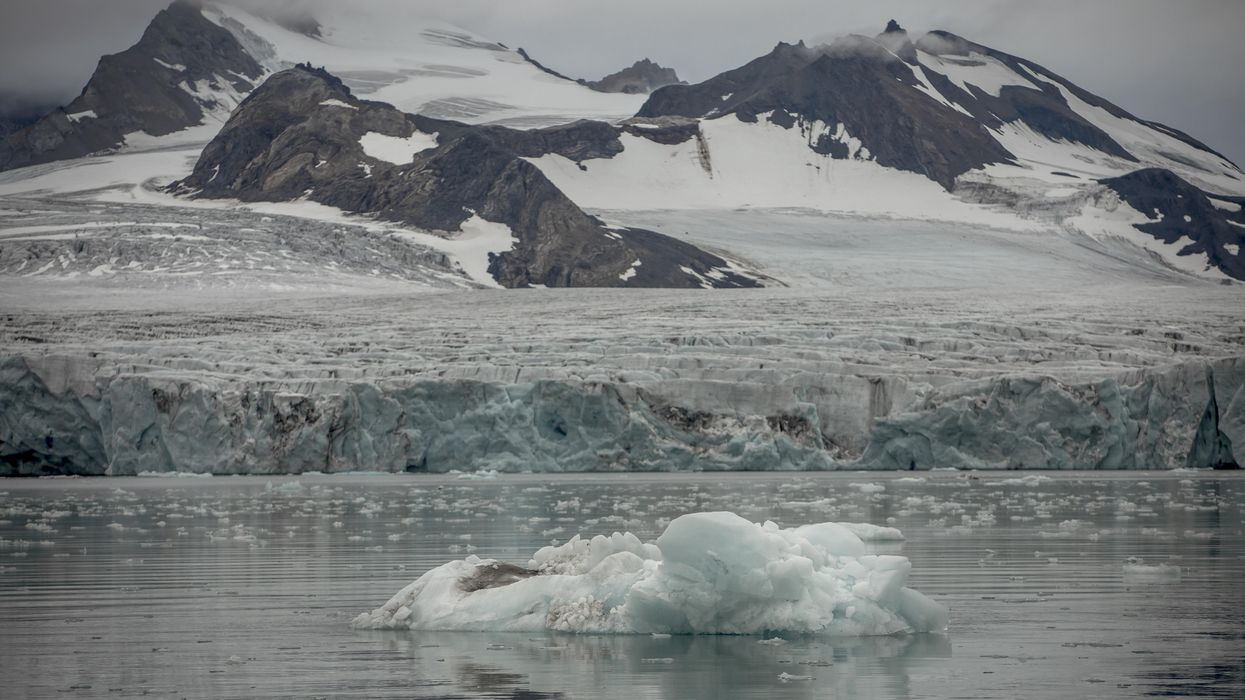
In a study that scientists say gathered "an unprecedented amount of data" to determine the fate of the world's ice sheets with more precision than ever before, researchers revealed Thursday that even if humans manage to limit planetary heating to 1.5°C above preindustrial temperatures, half of the planet's glaciers are expected to melt by 2100.
Under the current trajectory, the planet is expected to grow 2.7°C warmer this century, which the paper, published in Science and led by researchers at Carnegie Mellon University and University of Alaska, warns will lead to the disappearance of 68% of glaciers.
In that scenario, the U.S., western Canada, and central Europe would lose almost all their glaciers by the end of the century.
"In Spain, the disappearance of the Sierra Nevada glaciers means an almost complete reduction in water availability there from that time onwards, and the same applies to the glaciers in the Pyrenees."
The scientists, led by David Rounce in the Department of Civil and Environmental Engineering at Carnegie Mellon, examined two decades of satellite data to include all of the world's roughly 200,000 glaciers in the study. Previous research has focused on specific ice sheets and then extrapolated the data to reach conclusions about all glaciers.
The extensive use of data showed that "the scale and impacts of glacial loss are greater than previously thought," according to The Guardian.
The study authors emphasized that policymakers can take action to preserve as many glaciers as possible.
"The rapidly increasing glacier mass losses as global temperature increases beyond 1.5°C stresses the urgency of establishing more ambitious climate pledges to preserve the glaciers in these mountainous regions," reads the paper.
Even under the best-case scenario outlined by the researchers, average sea levels would increase by 3.5 inches from 2015 to 2100. If the planet warms by 2.7°C, 4.5 inches of sea-level rise is expected—23% more than previous models estimated, The Guardian reported.
"The study makes much of the earlier partial data more concrete," professor Antonio Ruiz de Elvira of the University of Alcalá in Spain, who was not involved in the research, told The Guardian.
The loss of two-thirds of the world's glaciers would worsen the risk of flooding in coastal areas across the globe and threaten water supplies for up to two billion people.
\u201cBreaking: we are losing the world's glaciers. Why should we care? 3.5 billion people rely on meltwater from glaciers for drinking, sanitation, irrigation, production of hydroelectricity, fluvial transport, cooling of nuclear power plants etc. \nOn fait quoi @ChristopheBechu ?\u201d— Dr. He\u00efdi Sevestre (@Dr. He\u00efdi Sevestre) 1672953859
"In California, the water needed to sustain agriculture comes from glaciers directly from the end of July," said Ruiz de Elvira. "In Spain, the disappearance of the Sierra Nevada glaciers means an almost complete reduction in water availability there from that time onwards, and the same applies to the glaciers in the Pyrenees. In India and China, they depend crucially on the Himalayan glaciers."
This content originally appeared on Common Dreams and was authored by Julia Conley.
Julia Conley | Radio Free (2023-01-05T23:13:31+00:00) World Could Lose Half of Glaciers This Century Even If Warming Is Kept to 1.5°C. Retrieved from https://www.radiofree.org/2023/01/05/world-could-lose-half-of-glaciers-this-century-even-if-warming-is-kept-to-1-5c/
Please log in to upload a file.
There are no updates yet.
Click the Upload button above to add an update.